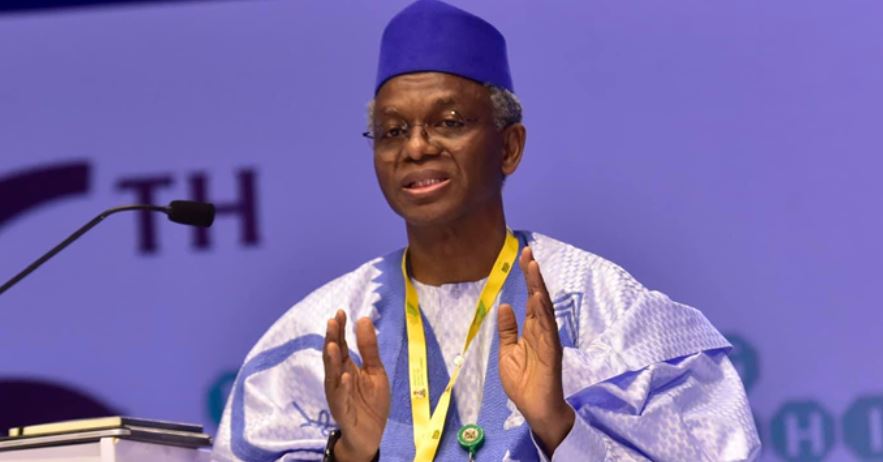The Kaduna Political Landscape Shifts: SDP Collapses into ADC Under El-Rufai’s Guidance
In a significant political realignment, the Social Democratic Party (SDP) in Kaduna State has fully integrated into the African Democratic Congress (ADC). This merger, orchestrated at a high-level coalition meeting chaired by former Governor Nasir El-Rufai, signifies a potential shift in the state’s political dynamics. El-Rufai, a prominent figure in northern Nigerian politics, commended the parties’ “unity of purpose” and emphasized the importance of collaborative governance for the betterment of Kaduna State. He portrayed the merger as a move towards a more inclusive and progressive political landscape, transcending individual party interests for the collective good.
The meeting, attended by a diverse array of political stakeholders, including the ADC Vice Chairman (North West), the ADC State Chairman, former commissioners, and representatives from the Peoples Democratic Party (PDP), underscored the breadth of this political realignment. El-Rufai’s presence and active role in facilitating the merger highlights his continuing influence in Kaduna politics, even after leaving the governorship. His call for a “credible, people-centred, and truly progressive” alternative suggests a strategic positioning of the ADC as a formidable force in future elections.
Key ADC figures echoed El-Rufai’s sentiments, welcoming the SDP members and emphasizing the shared vision for Kaduna’s development. Ja’afar Mohammed Sani, the ADC Vice Chairman (North West), lauded the SDP’s decision as a sign of their commitment to providing credible alternatives for the people. Elder Patrick Ambut, the ADC State Chairman, assured the incoming members of full integration into the party structure, emphasizing unity and a shared destiny. Mallam Bashir Saidu, a Kaduna ADC leader, framed the coalition as a convergence of ideologies focused on service, transparency, and development, aiming to create a platform reflective of the people’s aspirations.
This merger has set in motion a process of restructuring and strengthening the ADC’s presence in Kaduna. A key outcome of the meeting was the establishment of a Membership Registration Committee by the ADC National Working Committee. This committee, working in conjunction with state, local government, and ward structures, will oversee a fresh membership registration and revalidation exercise across Kaduna State. This initiative is designed to bolster the ADC’s grassroots support and ensure organizational readiness for upcoming elections. The revalidation process aims to consolidate the merger and solidify the ADC’s position as a unified and influential force within the state’s political arena.
The implications of this merger are multifaceted. Firstly, it potentially weakens the opposition to the ruling All Progressives Congress (APC) by consolidating votes within the ADC. This could create a more distinct two-party system in Kaduna, with the ADC emerging as a primary contender against the APC. Secondly, the involvement of El-Rufai, a prominent figure formerly associated with the APC, adds a layer of complexity to the political landscape. His endorsement of the ADC could influence voter perceptions and potentially attract a segment of the electorate disillusioned with the APC.
Finally, the success of this newly formed coalition hinges on several factors. The ability of the ADC to effectively integrate the SDP members and maintain internal cohesion will be crucial. The party will need to articulate a clear and compelling vision for Kaduna’s future to attract a wider range of voters. Furthermore, the political climate in the lead-up to future elections, including national trends and local issues, will significantly influence the ADC’s performance. This merger represents a dynamic shift in Kaduna’s political landscape, and its long-term impact remains to be seen. The coming months and years will reveal whether this new coalition can effectively challenge the existing power structures and usher in a new era of political representation in the state.
The strategic maneuvering underscores the fluid nature of Nigerian politics, particularly at the state level. Political alliances and realignments are common features of the pre-election period, driven by a complex interplay of factors, including personal ambitions, ideological alignments, and strategic calculations. The involvement of a figure like El-Rufai, with his considerable political capital, adds a layer of intrigue and underscores the significance of this particular merger.
The long-term consequences of this political realignment are yet to be fully realized. Whether the ADC can successfully capitalize on this merger and emerge as a dominant force in Kaduna politics remains an open question. The success of this new coalition hinges not only on the effective integration of the SDP but also on the ADC’s ability to present a compelling vision for the future of Kaduna State and resonate with a broad base of voters. The upcoming elections will serve as a critical test of the coalition’s strength and its ability to reshape the political landscape of Kaduna State.














